-
What We Do
- WHERE WE WORK
-
About Us
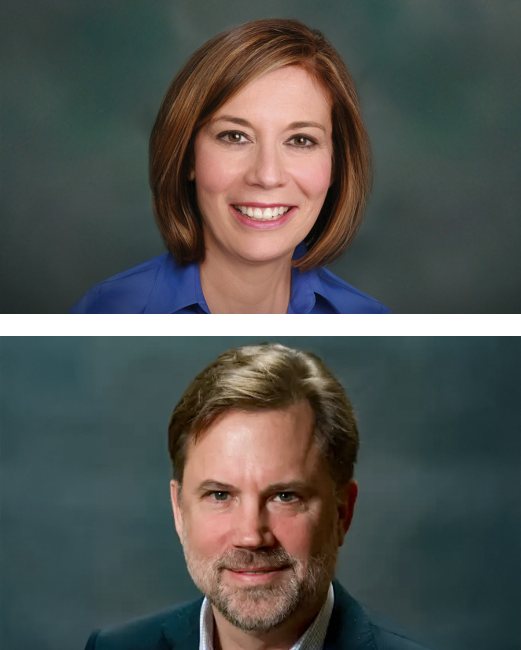 Welcome Message from Carol Jenkins, CEO
Welcome Message from Carol Jenkins, CEOWorld Learning believes that the best hope for peace, justice, and sustainability lies in bringing people together. Through cultural immersion, experiential learning, and information sharing, our programs equip others to collaboratively address the most pressing issues of our time.
Throughout my years at World Learning, I have had the fortunate opportunity to meet with many of our participants, partners, and alumni—a global network of learners. Our programs help them understand other cultures, master new skills, and cultivate networks. Our teaching and training methodologies empower them to find locally relevant, sustainable, and implementable solutions. Our approaches emphasize flexibility and adaptability that help them tackle real-world problems. They, in turn, make extraordinary changes in their lives and communities.
Please join us—and those we work with and serve around the world—in our pursuit to create a brighter and better future for all.
Carol Jenkins | CEO, World Learning
Allen Cutler | Chair, Board of Trustees - Get Involved
Media Center > Story
Connections made during International Visitor Leadership Program
September 26, 2023
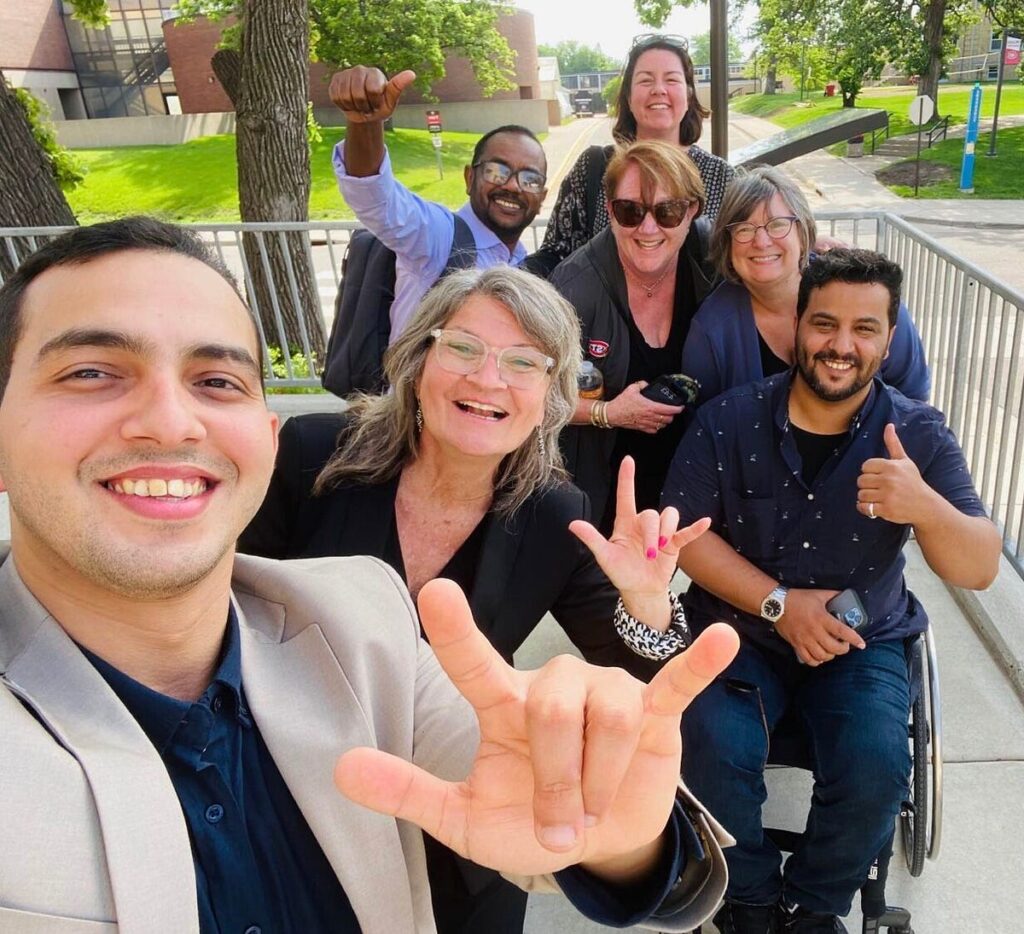
World Learning administers the U.S. Department of State-funded International Visitor Leadership Program (IVLP). From May to June, IVLP organized “Disability Rights — Equal Access for All,” a regional exchange that brought fourteen disability rights and accessibility advocacy leaders from the Near East and North Africa to the United States.
Participants, eight of whom were People with Disabilities, learned how governmental and nongovernmental organizations, advocacy associations, media outlets, and grassroots organizations influence policy and raise awareness about disability issues in the U.S. — as well as shared their own expertise on these same issues. They also explored public and private funding for services and created professional networking opportunities that facilitate long-term dialogue with their professional counterparts.
The program, which included meetings in Washington, DC, Minneapolis, Portland, and Boston, prioritized the importance of representation and the need to include a broad range of individuals with disabilities in conversations around accessibility and disability rights. This approach enabled many participants to share their expertise and lived experiences as they made connections with fellow experts and peers around the country.
This was evident in a session about disability justice, where a participant quickly bonded with panelist Qudsiya Naqui, who works as senior counsel at the U.S. Department of Justice promoting access to justice. Both are women and lawyers — and accomplished athletes who are Blind.
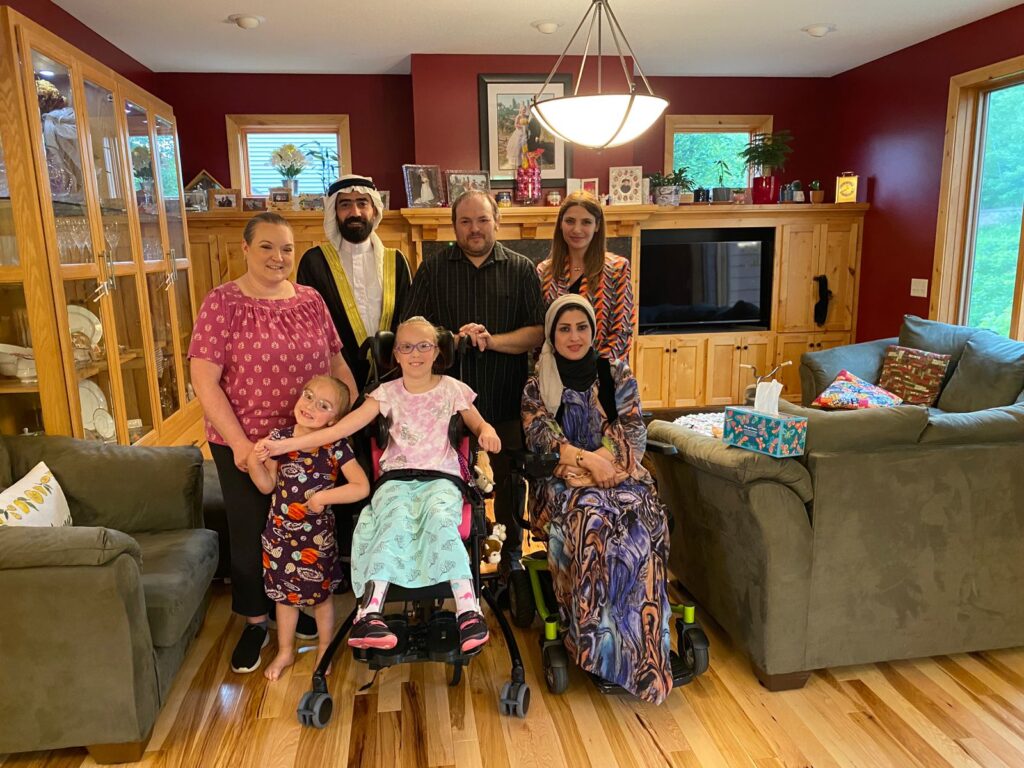
“Qudsiya is a lawyer and an athlete as well,” said the participant, a marathoner who is Blind. “She is very interested in enabling women and encouraging them to participate in sports. When I met Qudsiya, I felt that I met my twin in America.”
During a visit to the Tufts Dental School, which features programs that equip dental students with the tools to work with patients with disabilities, two participants were able to tap into their expertise in accessible dentistry. One is the MENA region’s first deaf dentist, and the other developed AUZY Mental Health, a medico-psycho-social support platform that has resources to make trips to the dentist more accessible for individuals with cognitive or intellectual disabilities or who have autism. This visit demonstrated the importance of disability rights in all spaces, including healthcare.
At Gallaudet University in Washington, DC, a renowned institution for the education of Deaf, Hard of Hearing, and Deaf-Blind students, participants discussed the university’s Science, Technology, Engineering, Math, and Public Health program. In addition, the group learned about the university’s unique approach to the education of Deaf individuals — particularly the use of sign language in the classroom. The session inspired conversations on the need for individuals with disabilities to have an accessible higher education environment and community.
On top of the important information learned in individual sessions, an equally important takeaway for the participants was the expansive, international community they gained.
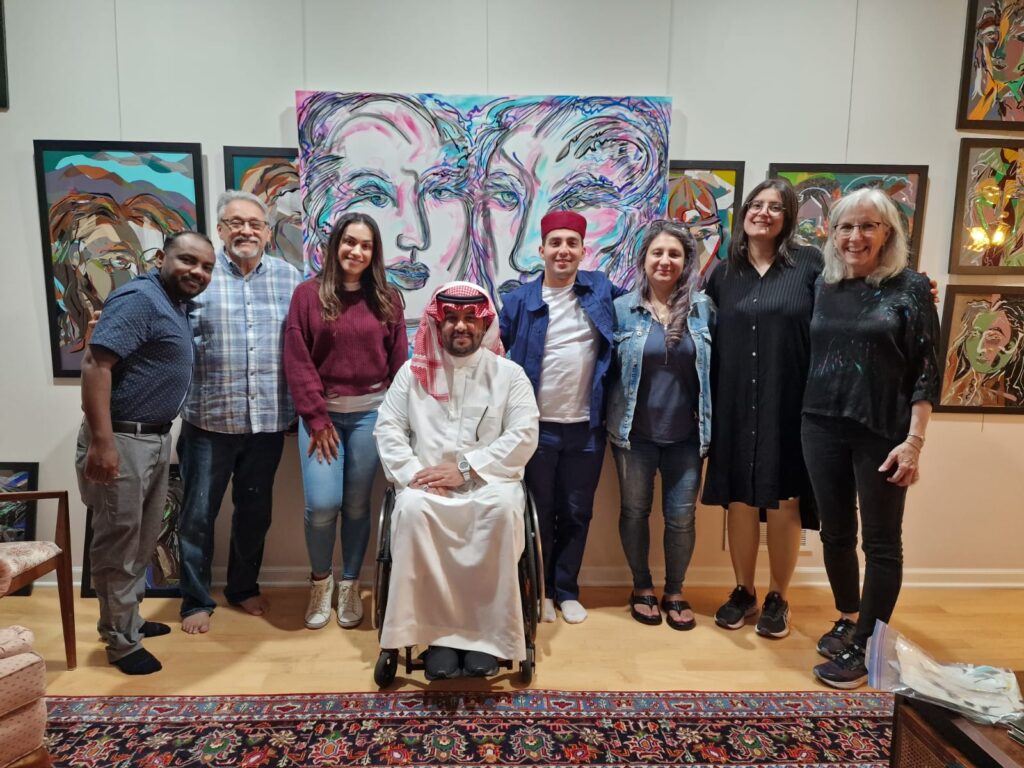
This was especially true for one participant from Tunisia who is fluent in Tunisian, French, and Arabic Sign Language. The opportunity to meet Deaf professors and fellow Deaf community members around Washington, DC, was a positive one.
“It is very positive for me to see successful stories for the Deaf,” he said. “I saw accessibility for Deaf [people] and for other disabilities, [like] how to walk in the streets without any obstacles.”
Throughout the program, most meeting content was interpreted across several linguistic channels to ensure accessibility. For instance, one speaker presented in American Sign Language, which was translated into spoken English and Arabic, then translated into Arabic and Tunisian Sign Language. Simultaneously, the spoken English output was fed into a Communication Access Realtime Translation, a service that provides real-time captioning in both English and Arabic in high contrast to ensure low-vision participants could access the captioning. This service enabled each participant to actively participate and contribute in all sessions.
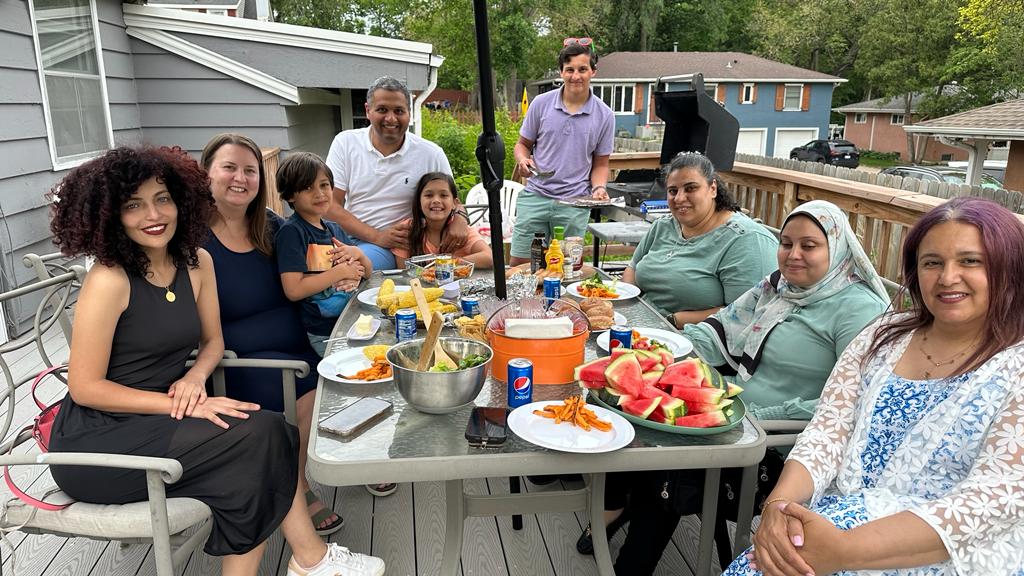
As the participants reflected on the program, their passion for their advocacy work was evident.
“A person has a right to full freedoms of human rights,” said one participant. “The experience taught me that change starts with one person [when they] advocate and rally because they are focused on their calling. It became very clear to me that every person on this earth has value. And that person deserves the chance to live with dignity and freedom.”
IVLP brings thousands of visitors to the U.S. every year for short-term professional exchanges on topics ranging from women and entrepreneurship and combating human trafficking to global pandemic collaboration and wildlife conservation. The primary goal of the program is to foster lasting relationships and help strengthen U.S. engagement with countries around the world. As one of eight National Program Agencies, World Learning partners with the U.S. Department of State to design and implement programs for more than 685 current and emerging leaders from more than 140 countries each year.



